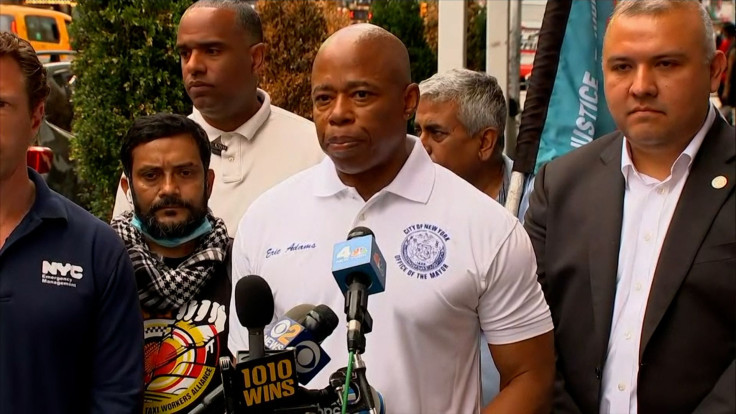
The Department of Homeland Security (DHS) was supposed to get more than $15 billion from Congress to fund a broader border security strategy. But now, as the bill aimed at procuring those funds has been scrapped in the Senate, a "doomsday clock" has been installed for federal agencies and cities struggling to deal with the influx of immigrants.
In a 49-50 vote that took place last week in the Senate, Republicans dealt the final blow to a bipartisan security bill that would, among other things, allocate around $1.4 billion to cities such as Chicago, New York, Denver, Los Angeles and Boston, who have struggled since last year to support and take care of migrants.
"It's an issue that's bedeviled, quite frankly, this body for decades. It's been three decades since we've passed anything into law to be able to change border security," Senator James Lankford, the leading Republican negotiator said last week before the vote.
The federal government has given around $370 million to cities struggling with migrants, but they have not received further federal support since last fall. Without more congressional funding, these cities might start to "suffer," a DHS spokesperson told NBC News.
Democratic mayors in these cities have reportedly pleaded with the Biden administration for more help to house and educate, provide medical care, and find work authorization for the tens of thousands of new migrants who have arrived since summer 2022. The now scrapped bipartisan border bill would have included such aids.

But cities are not nearly the only ones who will see drastic effects in the absence of the bill.
Without the new funding, the DHS will not only be unable to deal with an incoming influx of migrants, but it will also be unable to maintain the status quo, according to NBC News. Soon, this department's agencies will have to move resources from other areas to scrape by.
Fewer new hires, less arrests, detentions and deportations of immigrants, and decreased investment in technology to detect migrants and fentanyl smuggling are just some of the expected outcomes in the absence of this bill.
Immigration and Customs Enforcement (ICE), one of the major agencies of DHS, would have received $7.6 billion to dramatically increase detention space for migrants. But without it, it will have to carry out fewer deportation than it has in the past year and increase detention space.
"A reduction in ICE operations would significantly harm border security, national security and public safety," A DHS spokesperson said.
Interestingly, immigrants crossing the border are not the only ones who will see these changes, as those coming in through legal means will also feel the effects of the DHS funding drain.
Amid the lack of funds, U.S. Citizenships and Immigration Services (USCIS) will have to reallocate agents to the border to screen migrants for asylum, , the DHS spokesperson said.
© 2024 Latin Times. All rights reserved. Do not reproduce without permission.

.png?w=600)





